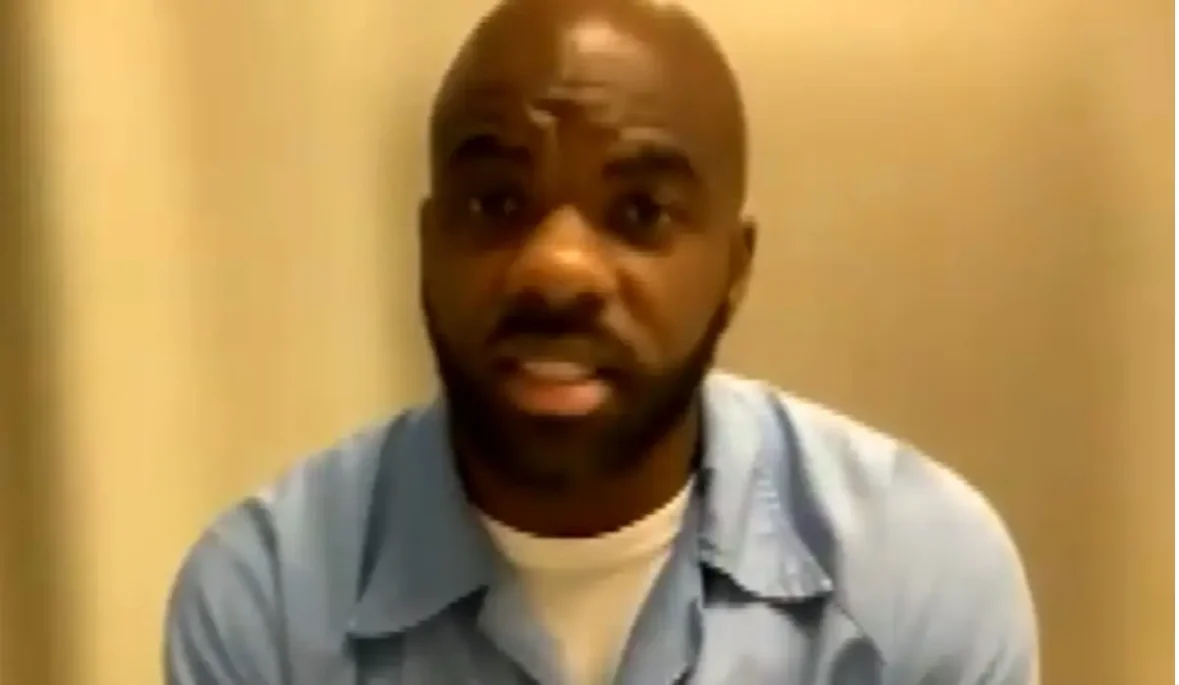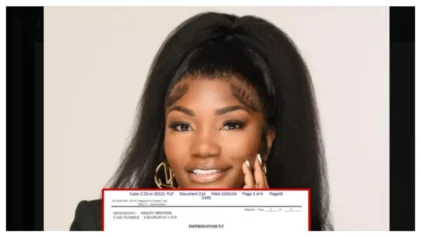An Illinois man recently received a major blow in his fight to clear his name and get released from prison, even though evidence points to significant flaws in the case against him.
In Cook County last month, Judge Angela Petrone refused to overturn Kevin Jackson’s conviction, which is connected to a gang-related shooting that happened in 2001.
Now 42, Jackson, who was 19 at the time, was accused of gunning down Ernest Jenkins at a Citgo gas station near the Back of the Yards and West Englewood neighborhoods. There was no physical evidence that put Jackson at the scene, but four witnesses signed statements written by the detectives naming Jackson.

Jackson was charged with first-degree murder and aggravated battery with a firearm, court documents show.
At issue is a special prosecutors’ report that found significant flaws in the case against Jackson.
Jackson’s cousin, Manuel Stewart, who was one of the witnesses, later recanted and said he was beaten and bullied into signing the statement, according to CBS News Chicago. By the time of the trial in 2003, all of the other witnesses had renounced their statements and told the jury they had been coerced into implicating Jackson.
Despite his continuous insistence on his innocence and allegations of witness coercion against the former detective, Brian Forberg, Petrone denied a request to overturn his conviction.
This decision came as a surprise, especially since the state’s attorney’s office said it would not oppose Jackson’s request or attempt to retry the case, the Chicago Sun-Times reported.
The special prosecutors, Tomas Geraghty and Robert Owen were appointed in 2022 after it was revealed that there was a potential conflict of interest between the head Chicago Police Department detective on Jackson’s case and a prosecutor working in the unit that passed over Jackson’s wrongful conviction claim, as reported by the Sun-Times. In fact, the two were found to be married.
The Conviction Integrity Unit reviewed Jackson’s case in 2019.
The unit’s former director, Nancy Adduci, wrote in a 2020 memo that after a “thorough” and “complete” review of Jackson’s conviction, “nothing requires a change of … course” and “this matter requires no further review,” according to the Chicago Sun-Times. Forberg was married to Kirsten Ann Olson, a former assistant state’s attorney who had a working relationship with the Conviction Review Unit, as the group is now known. Olson died in 2022.
“To suggest that a husband-and-wife team – one being the officer who’s accused of misconduct and the other being an attorney who’s going to oversee those allegations and investigate them – that that’s not a conflict of interest?” said Brandon Clark, one of Jackson’s attorneys. “It’s laughable.”
After a 10-month investigation, Geraghty and Owen concluded that the integrity unit had failed to look into possible police misconduct in the murder case.
They found an “unacceptably high likelihood that the prior witness statements that form the sole evidentiary basis for Jackson’s conviction were obtained by pressure, coercion, and overreaching by the police,” according to the Sun-Times.
Forensics experts and a polygraph expert also found significant flaws in the police department’s investigation.
Despite these findings, Petrone disagreed with the special prosecutors’ report and ruled on June 24 that Jackson’s latest attempt to overturn his conviction did not cite evidence that had not already been considered by his jury and other courts. The judge also dismissed the claim of the conflict of interest.
Also, Petrone has refused to vacate convictions in at least three other cases that state prosecutors didn’t oppose, according to media reports. Those decisions were overturned on appeal, Jackson’s attorneys said.
Jackson’s family and friends, who have been present for every hearing since December, expressed dissatisfaction with the decision but remained optimistic.
“Just disappointed. Frustrated, but we’re not gonna give up,” said his sister Lakisha Jackson, as reported by CBS News Chicago.
In a statement released by his attorneys, Jackson said that the decision was “severely irrational and unjust,” as reported by the Chicago Sun-Times. His lawyers filed a notice of appeal, and they still hope to have him home by the end of the summer.
The case continues to unfold and highlights the complexities and challenges in the justice system, serving as a stark reminder of the long and arduous journey toward justice for many people of color who claim to be wrongfully convicted.
Most notably, in Jackson’s case, prosecutors did not tell Jackson’s attorneys that a man who survived the shooting said he had “never seen” Jackson before and that the person who shot him didn’t look anything like Jackson.
Meanwhile, the Brady Disclosure Rule is a pretrial discovery rule that requires prosecutors to disclose all material, exculpatory information in the government’s possession to the defense team, according to the U.S. Department of Justice.
That includes any information favorable to the person accused of crimes, which may reduce the defendant’s potential sentence. The rule applies regardless of whether the defendant makes a specific request.
Forberg, the detective, has been accused by at least 20 former inmates of forcing witnesses to lie to put them behind bars, and most of them are Black men, according to CBS News Chicago. Forberg retired on Oct. 10.
“This is another perfect example of the grave injustice suffered not only by me, but all of Brian Forberg’s victims,” Jackson said in a statement. “We are being treated as political pawns in our pursuit for justice. I want to stress that this situation has been incredibly hard for me and my family, as I have been sitting in prison, wrongfully convicted, for 23 years and five days.”


